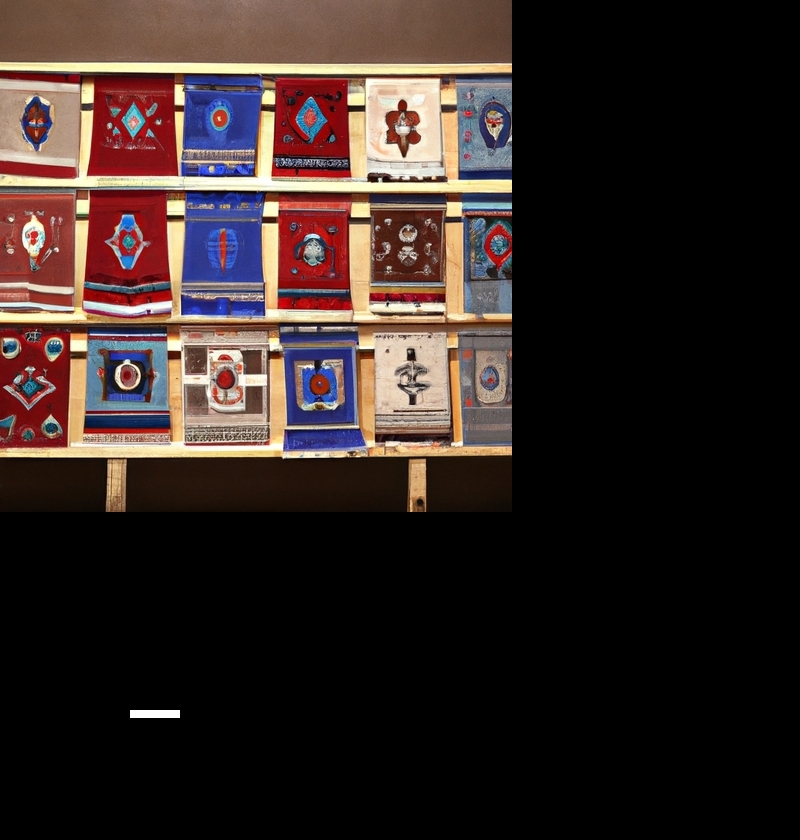which native american tribes allied themselves with the british
Introduction to Navajo Portrait Paintings
Native American tribes allied themselves with the British for many reasons. Most notably, (they) did so to protect their land from French and Spanish colonization. Additionally, (they) believed that the British would honor their treaties and agreements more faithfully than other European powers. Furthermore, they saw a potential ally in Britain who could help them defend against colonists' encroachment on their lands. Lastly, some tribes sought to gain favor with the crown due to its increasing influence in North America!
Moreover, Native Americans valued trade goods provided by the British and often received guns in exchange for foodstuffs which allowed them to hunt more efficiently and defend themselves better against adversaries. In addition, many native americans felt an affinity for the british monarchy based on shared experiences of colonialism. Therefore, a number of Indian nations chose to stand beside Britain during the Revolutionary War despite pressure from colonial governments.
Finally, there was also an element of pragmatism involved in these alliances; Native Americans understood that if they were able to secure trading rights with Britain then they might be able to obtain better prices for their goods rather than having to deal with middlemen from colonial settlements. Consequently, forming an alliance with England not only provided protection but it also offered economic benefits as well!

History of Navajo Artwork
The history of relations between the British and Native American tribes is a complex one. During the colonial period, many tribes allied themselves with Britain in order to gain trading priviledges (sic) and military protection. For example, the Six Nations of the Iroquois league formed an alliance with the British, which greatly aided them during their wars with rival native tribes.
Conversely, there were some Native American groups that remained neutral or even opposed British expansion into North America. The Cherokee nation was especially wary of British settlers and refused to sign treaties ceding land. This resulted in tensions between the two sides culminating in what is known as 'the War of 1812.' Ultimately, the Cherokee emerged victorious from this conflict despite being vastly out-numbered by British forces!
Nevertheless, after this war ended relations between some Native American tribes and Britain began to improve again due mainly to increasing trade opportunities. The Creeks for one benefited immensely from trading fur pelts for European manufactured goods thus creating a steady income source for them. In addition, through these interactions they also learned more advanced farming techniques which enabled them to grow crops such as corn and wheat that provided sustenance year round instead of relying on hunting and gathering food alone.
Interestingly enough, although most tribal leaders opposed slavery many intermarried with white traders during this time establishing strong ties between both groups. These unions ultimately led to greater peace and stability throughout much of North America making it possible for both cultures to coexist harmoniously albeit tenuously at times.(!) All things considered, it's clear that despite periods of hostility countless Native Amercian (sic) tribes forged lasting relationships with Britain that have endured until present day!
Techniques used in Navajo Portrait Paintings
Native American tribes allying with the British offered strategic benefits. This was due to the fact that they would gain access to weapons, technology and a powerful ally in terms of military support. The British had many resources which could help them defend agains other tribes or hostile settlers. Additionally, it would give them an opportunity to learn new skills and advance their culture. Indeed, it provided a chance for many Native Americans to find employment and better opportunities for trade and commerce!
Of course, this alliance also came with some drawbacks. For instance, there were cultural clashes between the two sides as well as legal complications when negotiating land rights. Furthermore, some felt threatened by the presence of foreign armies on their soil or worried about losing autonomy over their own lands. Despite these potential issues, many Native Americans still saw value in forming an alliance with the British due to its strategic advantages!
In conclusion, Native American tribes viewed allying with the Britsh as a beneficial move for both parties involved; they could take advantage of new technologies and resources while gaining a powerful ally against possible threats. Moreover, it presented oppurtunities for economic growth as well as cultural exchange between two very different peoples!
Popular Symbols and Motifs in Navajo Portrait Paintings
The native american tribes were not known to make alliances with many groups, but the british were an exception. After much negotiaion (and even some contention!), these two groups formed a partnership that would have a lasting impact. Initially, both parties had seperate agendas; the natives wanted to protect their land and resources while the british sought to expand their own empire. However, after discussions of trade and military support, they found common ground and agreed on terms that benefitted both sides.
The alliance was beneficial for both sides in many ways; The natives received guns, ammunition, blankets and other goods from the british while the latter got access to fur trading posts throughout North America. Additionally, by forming this bond of camaraderie they created a formidable foe against rivaling European powers such as France and Spain. This alliance would prove critical in future wars like The French & Indian War when Britain allied itself with several native tribes to defeat its enemies.
Overall, this unique partnership between two distant cultures sparked peace in an otherwise chaotic world and allowed them to coexist in harmony! Despite having different backgrounds, beliefs and loyalties these two groups managed to form an alliance that has become one of history's most remarkable stories of friendship!